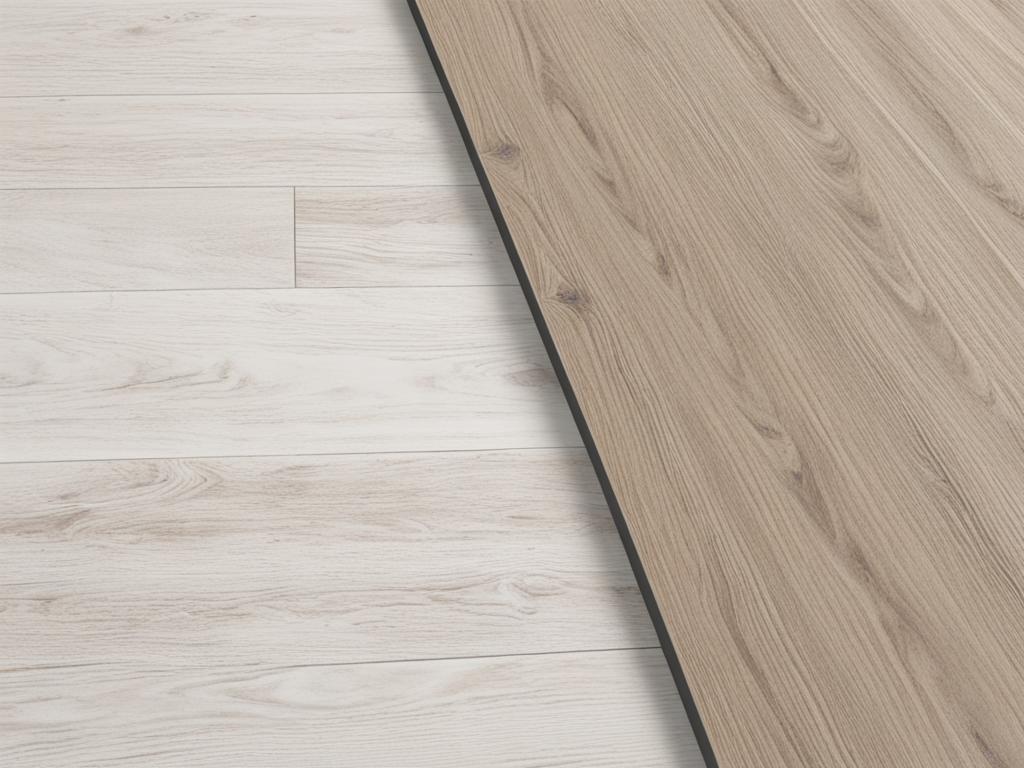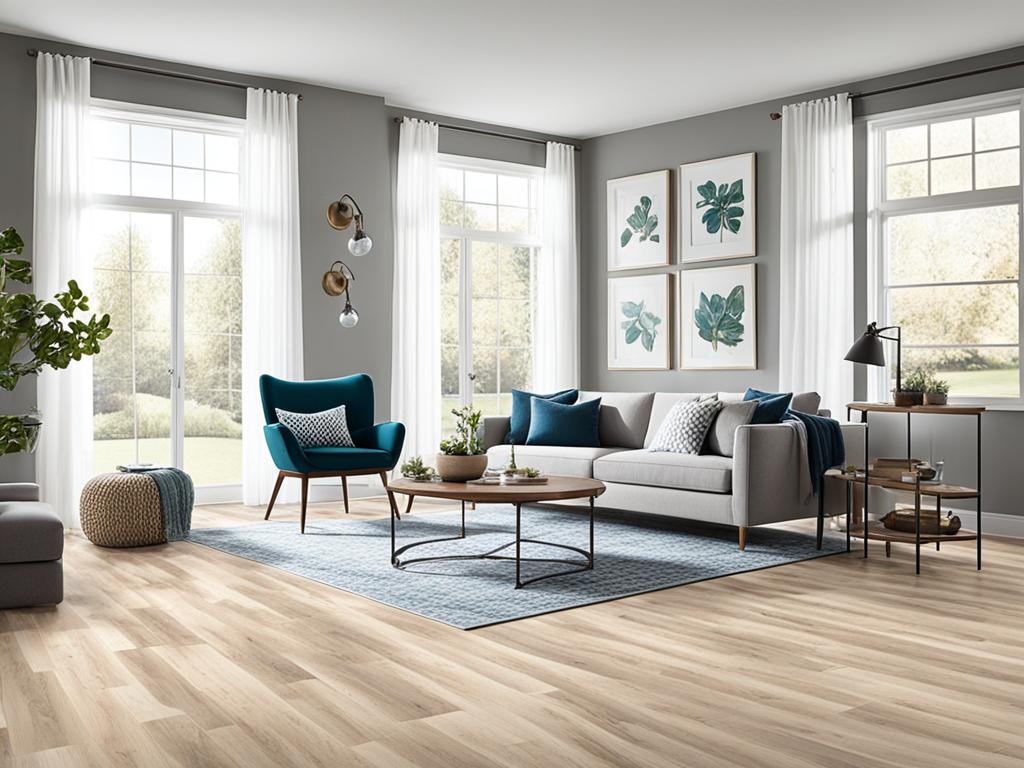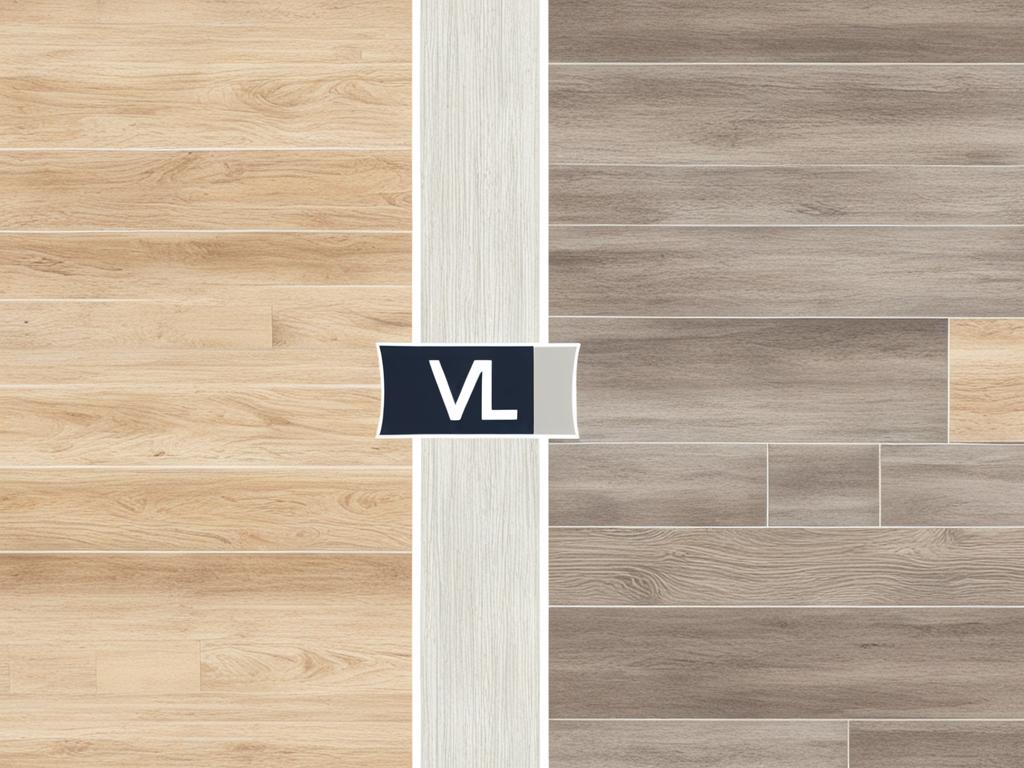When choosing the right flooring for your home, it’s important to compare different options and consider factors such as style, durability, and budget. Two popular choices are Pergo and Luxury Vinyl Plank (LVP). Both offer the look of real wood at a more affordable price.
In terms of installation, Pergo is a laminate flooring with a wood fiberboard core, while LVP has a solid vinyl core made of synthetics. Both options are durable and water-resistant, but LVP is generally considered to be more waterproof.
When it comes to cost, there are a wide variety of options available for both Pergo and LVP, with prices varying depending on the brand and quality. It’s important to note that while some laminates and LVPs are waterproof, not all of them are, so it’s crucial to select the right flooring based on your needs.
In terms of maintenance, both Pergo and LVP are relatively easy to clean, with vinyl flooring being slightly easier to care for. Ultimately, the choice between Pergo and LVP will depend on your personal preferences and needs.
Key Takeaways:
- Pergo and LVP offer the look of real wood at a more affordable price.
- LVP is generally considered to be more waterproof than Pergo.
- Cost varies depending on the brand and quality for both Pergo and LVP.
- Both Pergo and LVP are relatively easy to maintain, with LVP being slightly easier to care for.
- Ultimately, the choice between Pergo and LVP depends on personal preferences and needs.
Key Differences between Pergo and LVP
When comparing Pergo and Luxury Vinyl Plank (LVP), it’s important to understand the key differences between these two popular flooring options. These differences lie in the materials used, moisture resistance, durability, and maintenance requirements. Let’s delve deeper into the variations:
Materials:
Pergo: Pergo is a type of laminate flooring that consists of multiple layers laminated together. It features a wood fiberboard core, which lends it stability and strength.
LVP: LVP, on the other hand, is a luxury vinyl flooring made from synthetic materials. It offers the look of real wood with the added benefits of vinyl.
Moisture Resistance:
Pergo: While Pergo is water-resistant, prolonged exposure to water can cause swelling and damage to the wood fiberboard core.
LVP: LVP is generally more water-resistant and is considered to be 100% waterproof. It can withstand high levels of moisture without warping or swelling.
Durability:
Pergo: Both Pergo and LVP are scratch-resistant and can withstand high traffic areas. However, laminate flooring may be more prone to swelling and damage if exposed to water for extended periods.
Maintenance:
Pergo: Pergo and LVP are both relatively easy to clean. However, vinyl flooring is known for its resilience and easy maintenance.
Understanding these key differences can help you make an informed decision about which flooring option is best suited to your needs and preferences. The following table summarizes the variations between Pergo and LVP:
| Aspect | Pergo | LVP |
|---|---|---|
| Materials | Laminate with wood fiberboard core | Luxury vinyl made from synthetic materials |
| Moisture Resistance | Water-resistant, but prone to swelling | More water-resistant and considered 100% waterproof |
| Durability | Scratch-resistant, but can be damaged by water | Scratch-resistant and more resilient to moisture |
| Maintenance | Relatively easy to clean | Resilient and easier to maintain |

Now that you have a clearer understanding of the key differences between Pergo and LVP, you can make a more informed decision when choosing the best flooring option for your home. Remember to consider factors such as your budget, lifestyle, and the specific needs of the room where the flooring will be installed.
Pros and Cons of Pergo and LVP
When considering Pergo and Luxury Vinyl Plank (LVP), it’s important to weigh the pros and cons of each option. Here’s a breakdown of the key factors to consider:
Affordability
Pergo has the advantage of being more affordable compared to LVP and other hardwood flooring options. It provides a cost-effective solution while still offering a wide range of styles and finishes that closely mimic the look of real wood.
Appearance
Both Pergo and LVP come in a variety of styles and finishes, allowing you to choose the option that best suits your aesthetic preferences. Pergo offers a classic wood look, while LVP provides a versatile range of designs, including wood, stone, and tile patterns. However, some LVP options may have a more artificial appearance.
Water Resistance
When it comes to water resistance, LVP has the advantage. It is known for its exceptional water resistance and is considered to be 100% waterproof. On the other hand, Pergo is not completely waterproof and may be more prone to damage if exposed to water for long periods.
Heat Resistance
Both Pergo and LVP may not be as heat resistant as other flooring options. It is important to exercise caution and avoid exposing them to extreme heat sources such as hot pans or appliances.
Durability
In terms of durability, both Pergo and LVP are scratch-resistant and can withstand high traffic areas. However, laminate flooring like Pergo may be more prone to swelling and damage if exposed to water for extended periods.
Ease of Installation and Cleaning
LVP is generally easier to install and maintain due to its flexible nature. It can be installed as a floating floor or glued down. Additionally, both Pergo and LVP are relatively easy to clean, with vinyl flooring being slightly easier to care for.
“Pergo offers affordability and a wide range of styles, while LVP provides water resistance and durability. However, LVP may be more expensive and have a more artificial appearance. Ultimately, the choice between Pergo and LVP will depend on your budget, preferences, and specific needs.”

Conclusion
When it comes to choosing the best flooring for your home, the decision between Pergo and Luxury Vinyl Plank (LVP) ultimately depends on your specific needs and preferences. Factors such as the desired look and appearance, water resistance and durability, ease of installation and maintenance, and your budget should be taken into consideration.
Both Pergo and LVP offer affordable options that mimic the look of real wood, making them popular choices for homeowners. However, if water resistance is a top priority for you, LVP may have the advantage over Pergo.
It’s crucial to thoroughly research and compare different brands and styles within the Pergo and LVP categories. This will help you find the flooring that not only complements your home’s style, but also meets your durability needs and fits within your budget. Remember, there is no definitive answer as to which is the best flooring choice – it depends on your personal preferences and circumstances.
So, take your time, consider all the factors, and make an informed decision. Whether you choose Pergo or LVP, both options provide a practical and visually appealing flooring solution for your home.
